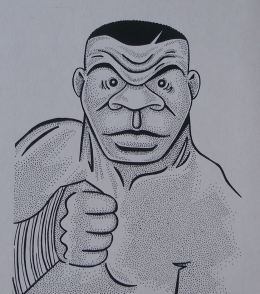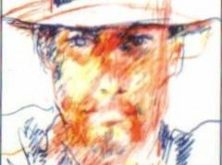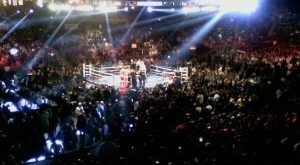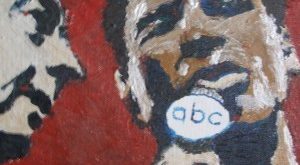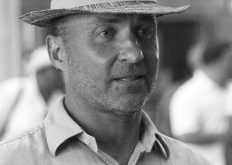
On this day August 6, 1984, Mike Tyson lost in the heavyweight division of the Olympic Trials to Henry Tillman at Caesars Palace in Las Vegas. The decision was controversial and some say it was retribution by USA Boxing against Tyson’s trainer Cus D’Amato, who was infamous for his outspoken critcism about amateur boxing corruption.
So the development of Mike Tyson took a major hit with that disputed loss. Tyson would continue boxing amateur before turning pro on March 3, 1985 in Albany, NY vs Hector Mercedes (KO 1).
Looking back on heavyweight history, one can only wonder how Tyson’s psyche and mindset would have evolved had he competed at the 1984 Los Angeles Olympics and won the gold medal. Would the added pressure of increased fame have been helpful or harmful to the eighteen year old from Brooklyn?
Steve Lott, a key component of the Tyson team back then, has an interesting take on if losing to Henry Tillman worked in Mike’s favor or against it.
“Mike handled that loss fine,” says Lott, almost four decades later. “In my opinion it was a blessing in disguise. Mike had very little ring experience. I think it was beneficial to Mike to develop slowly upstate New York the way he did. Had he won the Olympic heavyweight division he would have been under a massive spotlight and thrust on live TV in his first pro fight like the other 1984 Olympians (which included Tyrell Biggs, Pernell Whitaker, Mark Breland and Evander Holyfield). With TV opponents getting tougher than the ones he fought upstate he was able to mature slowly.”
That’s an interesting assessment by Lott because Tyson didn’t take long to challenge for the world title. He would win the World Heavyweight title in 1986 vs Trevor Berbick at age 20 — and then the rest is history. Iron Mike Tyson became an electrifying, iconic figure, earning hundreds of millions of dollars for himself and the boxing industry.
“Bottom line – Mike was the most highly paid athlete in the world, voted world’s most popular athlete. He had commercials on network TV, with major global brands. Spokesperson for the NYC Police Department , FBI and DEA. Mike may not be considered as the best heavyweight of all time – but he was the most exciting heavyweight of all time. By leagues.”
I had a question for Steve: Tyson proved how valuable and beneficial it is to develop slowly and come up the ranks slowly, under the radar. My question is, you said the plan was slow progression but two years to the title shot is rather quick. Did Mike improve better and faster than the braintrust expected, in those years 1985-86?
Lott: “Great question – after the tough fight with Jose Ribalta – and then the super performance against Alonzo Ratliff – Bill Cayton and Jim Jacobs were confident that Mike was ready. I guess they were right. For Mike, it was like walking down the street. No pressure. The day before the fight I wanted to know what Mike thought of Trevor Berbick as a fighter. But, I did not want him to use his own opinion. So, I asked Mike, How would Cus describe Berbick as a fighter? That question took Mike out of his own thinking and had him sitting with Cus and listening to Cus. Mike said, Ah, Cus would probably call him a tomato can. At that moment I knew that it would be no contest.”
The career of Mike Tyson, had he won Olympic gold at age 18, may have played out differently or exactly the same.
Even the brightest boxing pundit could not say for sure. Even Mike Tyson may not know what would have happened if the judges got the Tillman scorecards right.
 IBO Boxing Honesty and Integrity
IBO Boxing Honesty and Integrity
